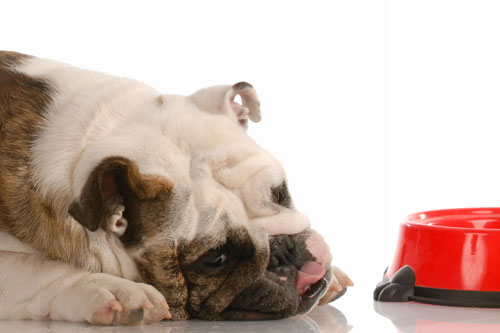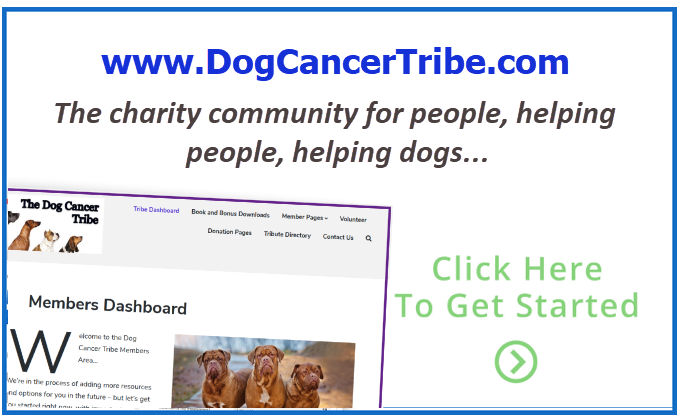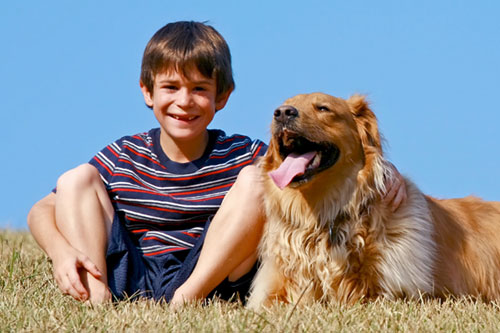 When Fighting Canine Lymphoma using holistic treatments – or when using natural means to support other conventional Canine Lymphoma Treatments, the role of the Guardian is to provide as much support as possible to help their dog’s natural immune system fight back against the Canine Lymphoma.
When Fighting Canine Lymphoma using holistic treatments – or when using natural means to support other conventional Canine Lymphoma Treatments, the role of the Guardian is to provide as much support as possible to help their dog’s natural immune system fight back against the Canine Lymphoma.
But as noted on the main page for Canine Lymphoma Holistic Treatment page, many of the commercial dog foods on the market are filled with byproducts and fillers that are inexpensive but don’t fit our dogs’ nutritional needs – especially when our dogs have cancer. That’s why it’s critical for guardians to analyze the foods they’re feeding their Canine Lymphoma dogs, and make any changes necessary to get them the best possible Canine Lymphoma nutrition.
One of our favorite places for dog guardians to determine the quality of the food they’re feeding their dog, is the Dog Food Advisor website, which provides detailed reviews and information about almost all of the most brands of dog food on the market.
What types of foods make up the Proper Canine Lymphoma Diet?
The proper Canine Lymphoma Diet generally consists of high levels of protein, and minimal amounts of carbohydrates.
Cancer feeds off of the carbohydrates (grains, etc.) that are found in most dog foods, so your dog’s regular food may actually be causing the cancer to grow faster. Instead, we want to feed our dogs foods that contain a lot of protein (generally from meat, lots of meat). This slows the cancer, and helps boost your dog’s strength and immune system to help in the cancer battle.
 Although there’s some controversy around it, especially for dogs who are currently undergoing chemotherapy treatments – many holistic vets, including Dr. Ulbrich, recommend a “raw meat diet” for most of their Canine Lymphoma patients. Veterinarians who oppose feeding raw meat to dogs with cancer, worry that their weakened immune system may make them susceptible to food poisoning or other disease as a result of eating these raw meats. And if that is a concern for you, then the general recommendation is to cook the meat slightly, to remove possible disease, but minimize the cooking to the extent you feel comfortable to avoid cooking away many of the nutrients that are available to dogs from eating their meat raw. The “raw vs. cooked” debate often this comes down to your personal choice, taking into account the advice and recommendations of any vets and experts who you trust.
Although there’s some controversy around it, especially for dogs who are currently undergoing chemotherapy treatments – many holistic vets, including Dr. Ulbrich, recommend a “raw meat diet” for most of their Canine Lymphoma patients. Veterinarians who oppose feeding raw meat to dogs with cancer, worry that their weakened immune system may make them susceptible to food poisoning or other disease as a result of eating these raw meats. And if that is a concern for you, then the general recommendation is to cook the meat slightly, to remove possible disease, but minimize the cooking to the extent you feel comfortable to avoid cooking away many of the nutrients that are available to dogs from eating their meat raw. The “raw vs. cooked” debate often this comes down to your personal choice, taking into account the advice and recommendations of any vets and experts who you trust.
Although you can’t feed a dog straight meat alone (like us, they need a more balanced diet that includes vegetables and other vitamins as well), raw meat recipes are specifically designed to meet dogs’ nutritional needs. You can buy quality, pre-made, raw meat packages at most holistic pet shops, or you can make the recipe yourself. A copy of the homemade recipe that Dr. Ulbrich created specifically for dogs with cancer can be found in Ted Schneck’s Fighting Canine Cancer book (written under the guidance and consultation of Dr. Ulbrich), which you can find here.
And while holistic dog cancer care includes a number of important pieces, diet is among the most important parts. For patients who can’t afford to purchase the supplements or get their dog other forms of holistic energy treatments discussed below, changing their diet to a super premium high protein food – or better still to a raw meat diet – is probably the best thing you can do to care for your dog on a low budget.
[report-callout]- Previous Article – Holistic Canine Lymphoma Care
- Next Article – Canine Lymphoma Supplements
For more free Canine Lymphoma information, downloads and support - and
for help with your dog’s cancer care – visit our sister Charity website
"The Dog Cancer Tribe" at www.DogCancerTribe.com
Note: The information on this website is intended for research and informational purposes only. It is not to be used to diagnose or treat any disease, and should not be used as a substitute for proper veterinary consultation and care. Every dog and every cancer case is different, so if you fear that your dog has Canine Lymphoma, we encourage you to seek appropriate professional veterinary care as quickly as possible to determine the best course of action to treat your dog and his or her particular circumstances.
———————
| (c) 2021 - CanineLymphoma.com | Privacy Policy | Terms and Conditions | Sitemap |





